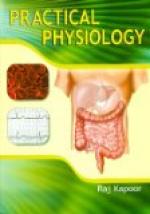In other words, fermentation is the result of the growth of low form of vegetable life known as an organised ferment. The ferment, whether it be the commonly used brewer’s yeast, or any other species of alcoholic ferment, has the power to decompose or break down a large part of the sugar present in the liquid into alcohol, which remains as a poison, and carbon dioxid, which escapes more or less completely.
Thus man, ever prone to do evil, was once obliged, in his ignorance, to make his alcoholic drinks in the crudest manner; but now he has forced into his service the latest discoveries in science, more especially in bacteriology, that he may manufacture more scientifically and more economically alcoholic beverages of all sorts and kinds, and distribute them broadcast all over God’s earth for the physical and moral ruin of the people.
Disinfectants.
400. Disinfectants, Antiseptics, and Deodorants. The word disinfectant is synonymous with the term bactericide or germicide. A disinfectant is a substance which destroys infectious material. An antiseptic is an agent which may hinder the growth, but does not destroy the vitality, of bacteria. A deodorant is not necessarily a disinfectant, or even an antiseptic, but refers to a substance that destroys or masks offensive odors.
401. Air and Water as Disinfectants. Nature has provided for our protection two most efficient means of disinfection,—pure air (sec. 218) and pure water (sec. 119). The air of crowded rooms contains large quantities of bacteria, whereas in pure air there are comparatively few, especially after rain, which carries them to the earth. Living micro-organisms have never been detected in breezes coming from the sea, but in those blowing out from the shore large numbers may be found.
In water tainted with organic matter putrefactive bacteria will flourish, whereas pure water is fatal to their existence. Surface water, because it comes from that part of the soil where bacteria are most active, and where there is most organic matter, generally contains great quantities of these organisms. In the deeper strata of the soil there is practically no decomposition of organic matter going on, hence, water taken from deep sources is comparatively free from bacteria. For this reason, deep well water is greatly to be preferred for drinking purposes to that from surface wells.
402. Disinfectants. It is evident that air and water are not always sufficient to secure disinfection, and this must be accomplished by other means. The destruction of infected material by fire is, of course, a sure but costly means of disinfection. Dry heat, steam, and boiling water are valuable disinfectants and do not injure most fabrics. These agents are generally used in combination with various chemical disinfectants.




